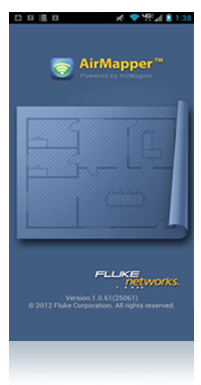Here in Tanaza we are aware that security is one of the requirement for a network, also in Small Businesses.
Here in Tanaza we are aware that security is one of the requirement for a network, also in Small Businesses.

With the ever-growing BYOD (Bring Your Own Device) phenomenon and the recent Wi-Fi explosion, IT groups within organizations face the constant challenge of flooded network resources by “foreign devices”(smartphones, tablets, …). IT staff must find the delicate balance between meeting the needs of the users with the best practices defined by the organization’s policies for Wi-Fi security and performance. User expectations of seamless mobility and superior performance on their own devices are not what IT staff signed up for.
Are you setting up a WLAN? You’ll need a cloud AP management solution, in order to configure and monitor your WLAN devices, and also a WiFi Monitoring Software.
The hefty price tag represents 20x Meraki’s estimated annual run rate (which IDC estimated in their most recent WLAN report to be approximately $15M / quarter). This compares to valuations of ~4x revenue among the most successful wireless LAN companies (Ruckus included) that are already profitable, debt free and market leaders within their respective segments.
Why the Big Price Tag?
Pundits posit that Cisco has been after Meraki for years and may have been influenced by missing out on aquiring Nicera that was grabbed by VMWare earlier this year for $1.26 billion.
But let’s be clear, Cisco isn’t buying Meraki for its Wi-Fi. It’s buying them for their system management software. The “cloud” glow around Meraki adds a kicker to the valuation, for sure. The fact that Meraki targets the SMB market where Cisco has struggled adds another justification to the hefty price tag.
Cisco’s infrastructure solutions, including their wired, wireless and security products, are notoriously complex. A exclusive club of Cisco certified engineers called CCIEs have benefitted from the full employment act as a result. However the complexity has hampered Cisco’s success in the SME/SMB market where customers can’t afford in-house CCIEs.
Cisco is also in need of a new hot gig. Growth of its core revenue drivers – routers and switches – has been trending down. And new endeavors via organic or acquired means in the consumer, video and server markets haven’t produced the next golden egg. “Cloud” is hot and has the potential of delivering a long term recurring revenue stream.
Meraki is a software engineering company and a first mover into cloud-based networking targeting the SMB market. It has the ingredients that Cisco needs to:
Is Meraki Cloudifying or Clarifying Cisco’s Vision?
To achieve its goals for the $1.2B acquisition, Cisco needs a clear integration strategy for Meraki, which Cisco largely glossed over in its announcement. So, questions remain:
What’s It All Mean?
In the short term it means one less player in the wireless LAN space. Customers and resellers will have to wait, as they always do, as the two companies sort things out. Meanwhile enterprises have real Wi-Fi capacity problems to combat and need help now.
There’s little question that enterprises will be reluctant to purchase any more Meraki products when Cisco’s Wi-Fi APs perform better (but don’t believe us, believe this) not to mention the risk that Meraki’s hardware may become obsolete.
Until there is a clear product rationalization plan, Meraki’s channel partners will be left hanging. Those channel partners that had selected Meraki as a Cisco alternative in the first place will certainly be looking to replace Meraki.
Private Wi-Fi companies like Aerohive may get caught in the wake too as they may be the next WLAN player to be gobbled up by Cisco’s competitors. Channel partners wearied of mergers and acquisitions will think twice before they invest.
Longer term the Cisco/Meraki deal means that the cloud will play an important role in the management of network infrastructures.
Despite what people might think, at Ruckus we’re big believers in the cloud and are innovating in this space. Moreover we’re even bigger believers in choice.
Ultimately, different customers have different preferences driven by TCO, budget cycles, security, WAN condition and the need for control. Some will want cloud management and some will want on-premise solutions.
But one thing is for certain: everyone wants reliable and pervasive Wi-Fi performance to deal with the onslaught of users, devices, media-rich communications, and interference that’s threatening to cripple enterprise and service provider networks alike. And that’s what Ruckus is all about.
The forecast calls for low pressure to develop over the WLAN industry causing an accumulation of clouds with a strong chance of showers and thunderstorms before it all clears up. Strap yourself in.
 The world of technology is constantly emerging. More and more, people are relying on electronics and the Internet to get by in their daily life. Not only do homes and offices have a need for wireless Internet, but now public spaces are finding it essential in attracting customers and keeping them satisfied. Public places such as coffee shops, airports and even airplanes are now offering Wi-Fi to the public. The real concern for Wi-Fi, however, is in hotels. We are at a point now where hotel guests value Internet access almost as much as they would a bed and a bathroom—it is essential and they think they can’t live without it.
The world of technology is constantly emerging. More and more, people are relying on electronics and the Internet to get by in their daily life. Not only do homes and offices have a need for wireless Internet, but now public spaces are finding it essential in attracting customers and keeping them satisfied. Public places such as coffee shops, airports and even airplanes are now offering Wi-Fi to the public. The real concern for Wi-Fi, however, is in hotels. We are at a point now where hotel guests value Internet access almost as much as they would a bed and a bathroom—it is essential and they think they can’t live without it.